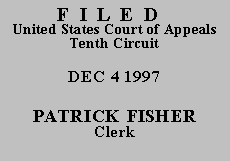

| UNITED STATES OF AMERICA,
Plaintiff-Appellee, v. STEPHEN L. CAMPBELL, and |
|
| UNITED STATES OF AMERICA,
Plaintiff-Appellee, v. JARED ZIERENBERG, Defendant-Appellant. |
|
Defendants Stephen Campbell and Jared Zierenberg appeal the district court's order vacating sentences imposed by the magistrate judge for removing elk antlers from the National Elk Refuge and the Grand Teton National Park, in violation of 36 C.F.R. § 2.1(a)(1)(i). We dismiss for lack of jurisdiction.
Defendants pleaded guilty and the magistrate deferred adjudication of guilt for two years with the condition that defendants violate no laws for that period. The magistrate also fined each defendant $2,000, but suspended $1,513 of the fine. The government appealed to the district court, arguing the magistrate had no authority to defer adjudication of guilt and dismiss charges after successful completion of a probationary period. The district court agreed and vacated the judgments and remanded for entry of judgments consistent with its order. Defendants appeal from these district court rulings.
Because an order remanding a case for further proceedings ordinarily is not a final appealable order, see Baca-Prieto v. Guigni, 95 F.3d 1006, 1008 (10th Cir. 1996); United States v. Baxter, 19 F.3d 155, 156 (4th Cir. 1994), we ordered the parties to file jurisdictional memoranda. Both parties argue the order appealed is a final appealable order. We conclude the district court's order remanding the case to the magistrate for entry of judgment consistent with its order is not a final appealable order. In a criminal case, the sentence is the judgment. Bradley v. United States, 410 U.S. 605, 609 (1973); United States v. Tsosie, 966 F.2d 1357, 1359 (10th Cir. 1992). Vacating or setting aside a sentence is the same as ordering resentencing. United States v. Smith, 116 F.3d 857, 858 (10th Cir.), cert. denied 118 U.S. 256 (1997). By vacating the magistrate's judgment and remanding for entry of judgment consistent with its order, the district court vacated the sentence and remanded for resentencing consistent with its order.
When a defendant's sentence is vacated on appeal and remanded, resentencing is de novo unless the reviewing court specifically limits expansion of resentencing beyond the sentencing error causing the reversal. Smith, 116 F.3d at 858; United States v. Webb, 98 F.3d 585, 587 (10th Cir. 1996), cert. denied 117 S.Ct. 1097 (1997). Here, the district court did not specifically limit the magistrate's discretion on resentencing. Cf. Webb, 98 F.3d at 587-88 (appellate mandate specifically ordered district court to resentence defendant within guideline range of 27-33 months). The district court required only that resentencing be consistent with its order which held the magistrate lacked authority to defer adjudication of guilt. A different sentence would be consistent with the order as long as the magistrate did not defer adjudication of guilt. On resentencing, the magistrate will be free to resentence the defendants de novo. The action on remand is more than merely ministerial and involves exercise of considerable judicial discretion. Consequently, the order remanding the cases to the magistrate is not a final order. See In re Rex Montis Silver Co., 87 F.3d 435, 438 (10th Cir. 1996); Baxter, 19 F.3d at 156. Cf. Gulf Refining Co. v. United States, 269 U.S. 125, 135-36 (1925).
The government relies on United States v. Mendes, 912 F.2d 434 (10th Cir. 1990), to argue resentencing on remand is limited to the sentencing error that caused reversal. We do not read Mendes as requiring that result. In Mendes, after conviction and sentence, defendant appealed his conviction but withdrew his notice of appeal. After the government obtained a writ of mandamus requiring resentencing under Fed. R. Crim. P. 35 to a mandatory minimum sentence, defendant's appeal was limited to his sentence because he had waived his right to appeal the conviction by withdrawing his notice of appeal.
Nor is the district court's order appealable under the collateral doctrine, which is construed narrowly in criminal cases. Exceptions to the final judgment rule in criminal cases are rare. Flanagan v. United States, 465 U.S. 259, 270 (1984). To be appealable under the collateral doctrine, an order must "(1) conclusively determine the disputed question, (2) resolve an important issue completely separate from the merits of the action, and (3) be effectively reviewable on appeal from a final judgment." Utah ex rel. Dept. of Health v. Kennecott Corp., 14 F.3d 1489, 1492 (10th Cir. 1994) (quoting Coopers & Lybrand v. Livesay, 437 U.S. 463, 468 (1978)). When denial of immediate review will not make effective review impossible by causing irretrievable loss of rights, collateral review is unavailable. Blondin v. Winner, 822 F.2d 969, 973 (10th Cir. 1987). Here, denial of immediate review will not make effective review impossible. After resentencing by the magistrate, if defendants are dissatisfied with their new sentences, they can appeal the denial of deferred adjudication to the district court and after the district court enters final judgment, they can raise the issue in an appeal to this court. Neither defendants nor the government will suffer irretrievable loss of rights.
The appeal is DISMISSED. The mandate shall issue forthwith.
Entered for the Court
Mary Beck Briscoe
Circuit Judge
*. This order and judgment is not binding precedent, except under the doctrines of law of the case, res judicata, and collateral estoppel. The court generally disfavors the citation of orders and judgments; nevertheless, an order and judgment may be cited under the terms and conditions of 10th Cir. R. 36.3.